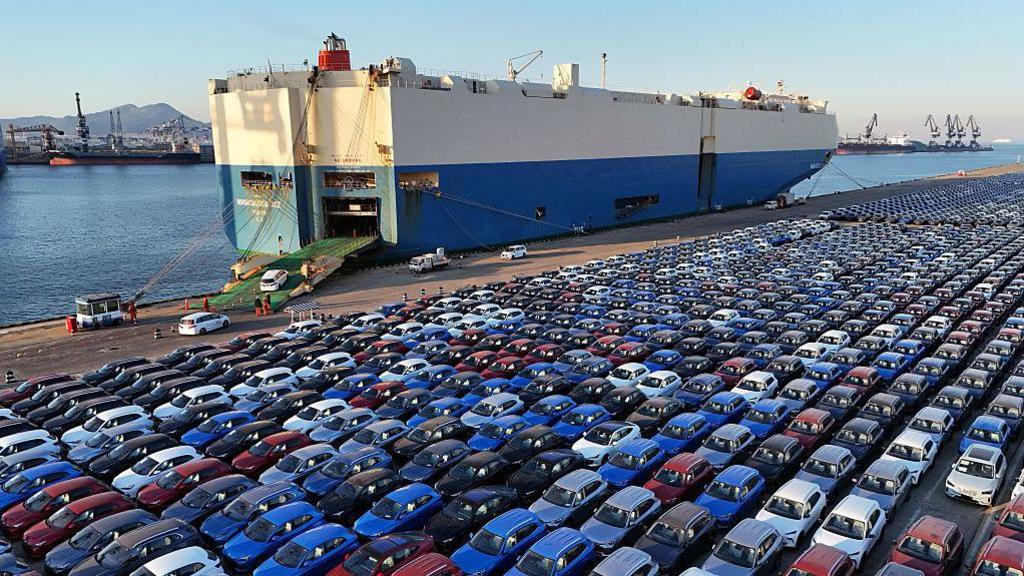Trump announces tariffs on NI and Irish goods
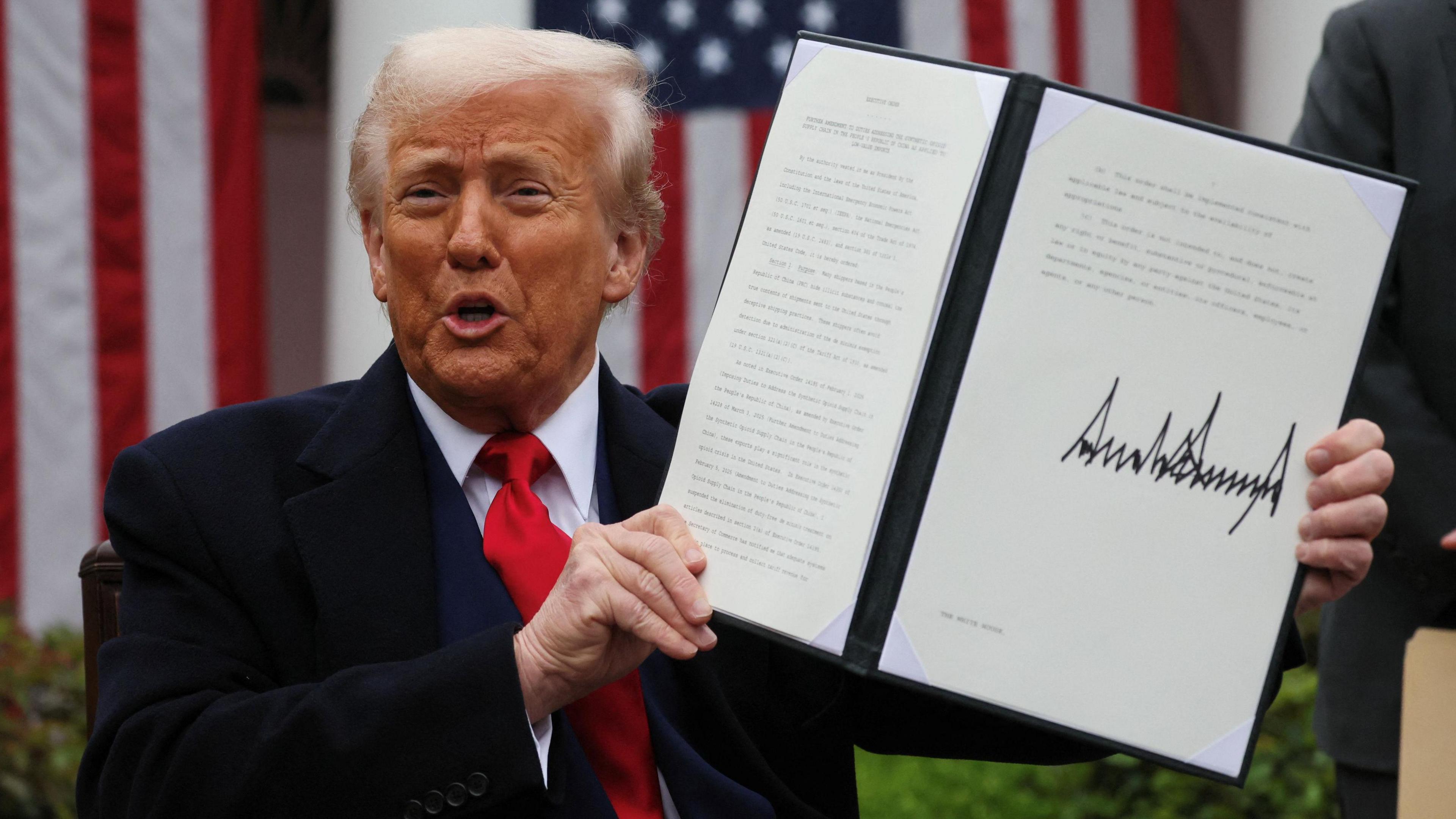
US President Donald Trump holds a signed executive order on tariffs
- Published
Northern Ireland goods entering the US will face a 10% tariff from Thursday after President Donald Trump imposed a sweeping round of protectionist trade measures.
Companies in Northern Ireland sell goods valued at around £1.5bn to the US every year, with a concentration in pharmaceuticals and industrial machinery.
Northern Irish goods will be covered by the tariff which Trump has imposed on the UK as a whole.
Goods from the Republic of Ireland will be hit with a 20% tariff as part of measures Trump has imposed on the EU.
Among EU countries, Ireland is the most reliant on the US as an export market.
In 2024, almost a third of the country's total exports were to the US - worth €73bn (£61bn).
Taoiseach (Irish prime minister) Micheál Martin said he could see "no justification" for the tariffs, adding that Ireland will reflect with its "EU partners on how best to proceed".
Live updates: Reaction to Trump's tariffs announcement
Northern Ireland reaction: Businesses facing 'unwelcome' uncertainty
At a glance: What president's new taxes mean for EU, China and others
Any retaliation by the EU could lead to the a unique situation where US goods coming into Northern Ireland - a part of the UK - will face EU tariffs.
This is because, under post-Brexit trade arrangement contained in the Windsor Framework, goods coming into Northern Ireland must meet EU rules.
This means that even if the UK chooses not to act, any EU counter-measures will mean US goods entering Northern Ireland will face tariffs.
Tariffs are effectively taxes applied to goods imported from other countries.
Governments impose tariffs in the hope of protecting local manufacturers from international competition.
What did Trump say about UK and EU tariffs?
Speaking at the White House on Wednesday, Trump said: "My fellow Americans, this is Liberation Day."
He added that it will be remembered as the day American industry was "reborn" and the day America was "made wealthy again".
"This is one of the most important days, in my opinion, of American history," he said.
"It's our declaration of economic independence."
Posting on X after the announcement, First Minister Michelle O'Neill said her priority "has always been to protect the best interests of workers, families, and businesses on the island".
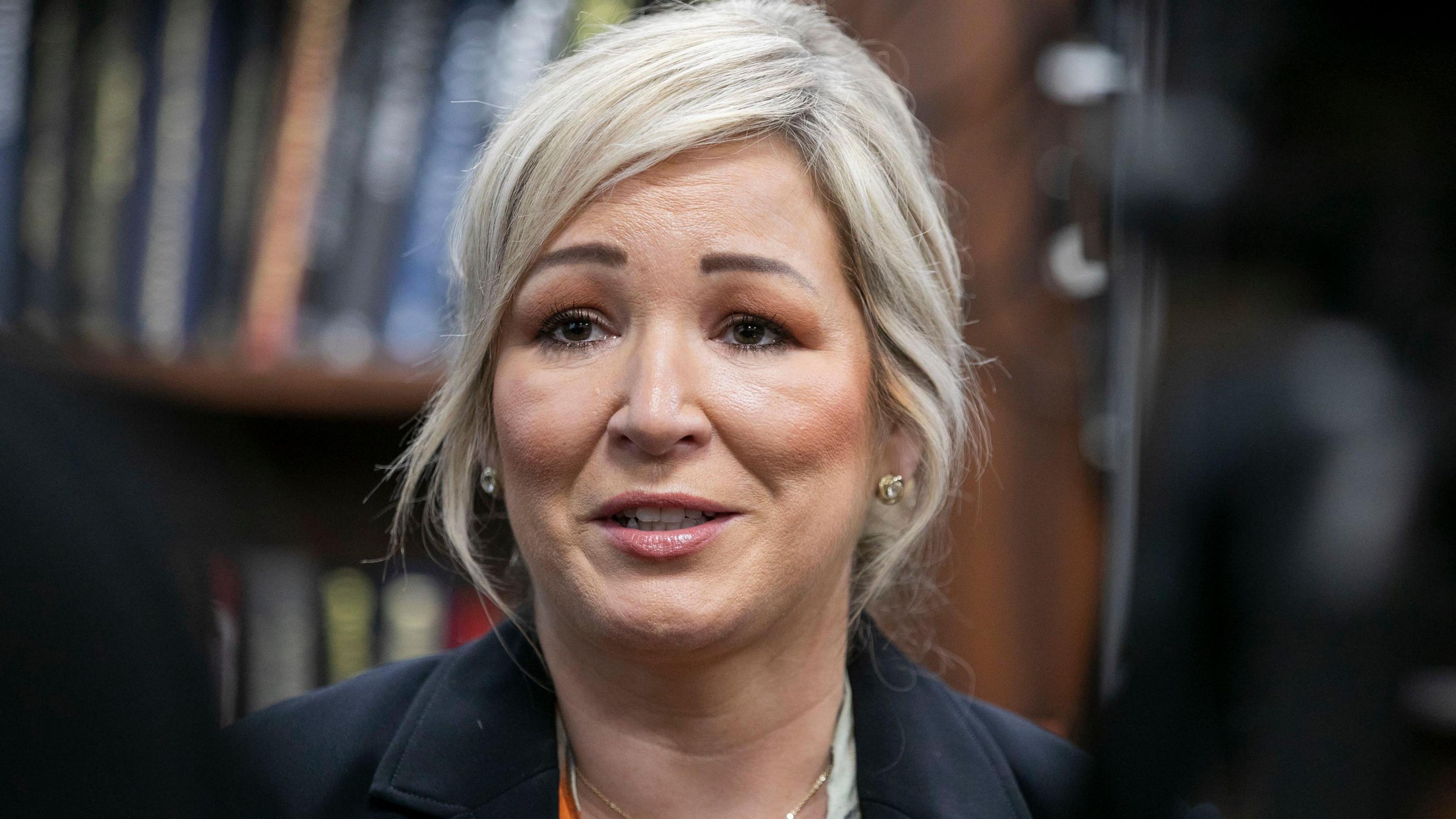
First Minister Michelle O'Neill said she would speak with business and political leaders
"We must ensure that our all-island economy, which has grown substantially in recent years, continues to thrive to create better opportunities for all our people," she added.
O'Neill said she will "continue to speak with political and business leaders throughout this period of uncertainty" and prioritise "the prosperity and future of everyone who calls our island home".
Speaking earlier, Prime Minister Keir Starmer said the UK government was "looking carefully" at the prospect of any retaliatory tariffs the EU may announce in response to the tariffs, and the impact they might have in Northern Ireland.
In response to the announcement, Democratic Unionist Party (DUP) leader Gavin Robinson said that "Northern Ireland remains exposed to potential EU retaliation, and local businesses must not become collateral damage".
"The government must take urgent steps to protect Northern Ireland's interests and ensure our place in the UK internal market is fully safeguarded," he said.
Meanwhile, Alliance deputy leader Eoin Tennyson said following the announcement "the biggest losers will be the American people".
"We must stand firm with our allies and respond in a way which protects jobs and investment, including resetting our relationship with our European neighbours," he added.
UUP assembly member Steve Aiken said that tariffs were "never good news".
He added: "Additional costs, impediments to free trade and the reimposition of a myriad of non-tariff barriers will result in economic slowdown or worse."
Analysis: The tariffs tit-for-tat and Northern Ireland
by John Campbell, BBC News NI economics editor
We shouldn't expect that exports to the US from Northern Ireland will collapse, because very often when you're a manufacturer competing on a global stage, you're not doing that solely on price.
It's not like there's a load of American companies who can immediately substitute what you're doing at a cheaper rate.
What you're probably likely to see is the volume of goods that might be sold into the US will decline just because they get more expensive.
There is also a Windsor Framework element to this – not on the export side because Northern Ireland goods going into the US are just UK goods.
But goods coming into Northern Ireland have to meet EU rules, so you could have a situation where the UK doesn't retaliate, doesn't impose any tariffs on US goods, but the EU would retaliate.
In that circumstance, US goods entering Northern Ireland would have to pay the EU tariffs but US goods entering the rest of the UK would not have to pay the tariffs.
There is the possibility that Northern Ireland importers could get a rebate of the tariff if they can show that the goods are staying within Northern Ireland.
How is the Republic of Ireland reacting to Trump's tariffs?
Speaking on Wednesday night, Taoiseach Micheál Martin said any retaliatory action by the EU should be "proportionate" and "aimed at defending the interests of our businesses, workers and citizens".
"A confrontation is in no one's interests," he added.
"Ireland will be a strong advocate for an outcome which enhances the existing and strong transatlantic trading relationship."
Tánaiste (Irish Deputy Prime Minister) Simon Harris said the 20% tariff "could have a significant effect on Irish investment and the wider economy" and its impact was "likely to be felt for some time".
"It represents a huge challenge to Irish exporters to the US across all sectors. Work is already underway to mitigate this and we are already taking concrete steps to boost our domestic competitiveness and investing in our infrastructure."
He said there were "no winners when it comes to tariffs".
US tariffs could have a more profound effect on the Republic of Ireland's economy, which is heavily reliant on the US as an export market.
Trump has previously indicated his discontent with the scale of manufacturing by US pharmaceutical firms in Ireland.
A fact sheet published by the White House said pharmaceuticals will not be subject to the tariff.
However, they are likely to face tariffs in the future.
Trump tariff will 'drastically' affect pharmaceutical supply, says CEO
Speaking ahead of the announcement, Gareth Sheridan, chief executive of pharmaceutical firm Nutriband, said the global supply chain could be drastically affected by the tariffs.
Mr Sheridan said a quarter of Americans had "foregone treatment" because of the cost and that could rise by 25%, becoming "an extreme burden on the patient".
Related topics
- Published13 March
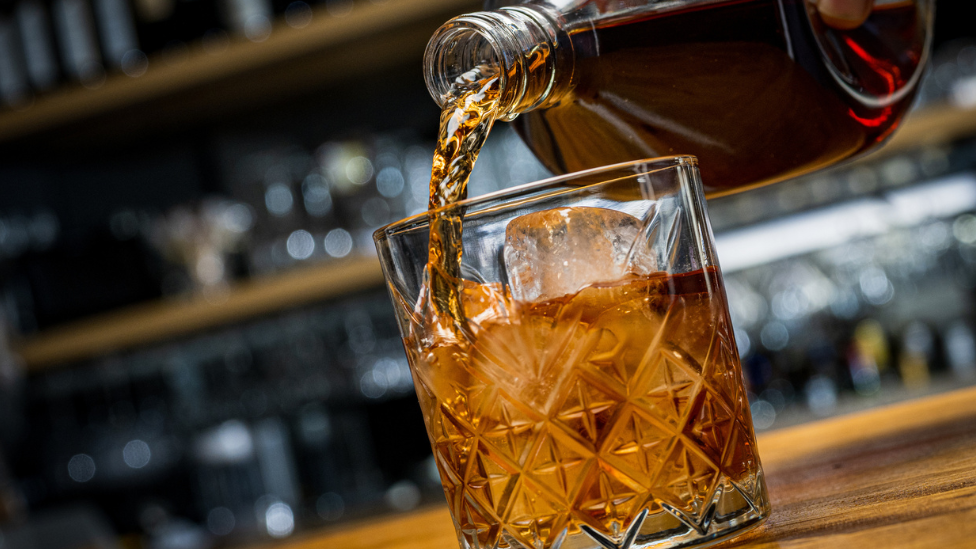
- Published27 March
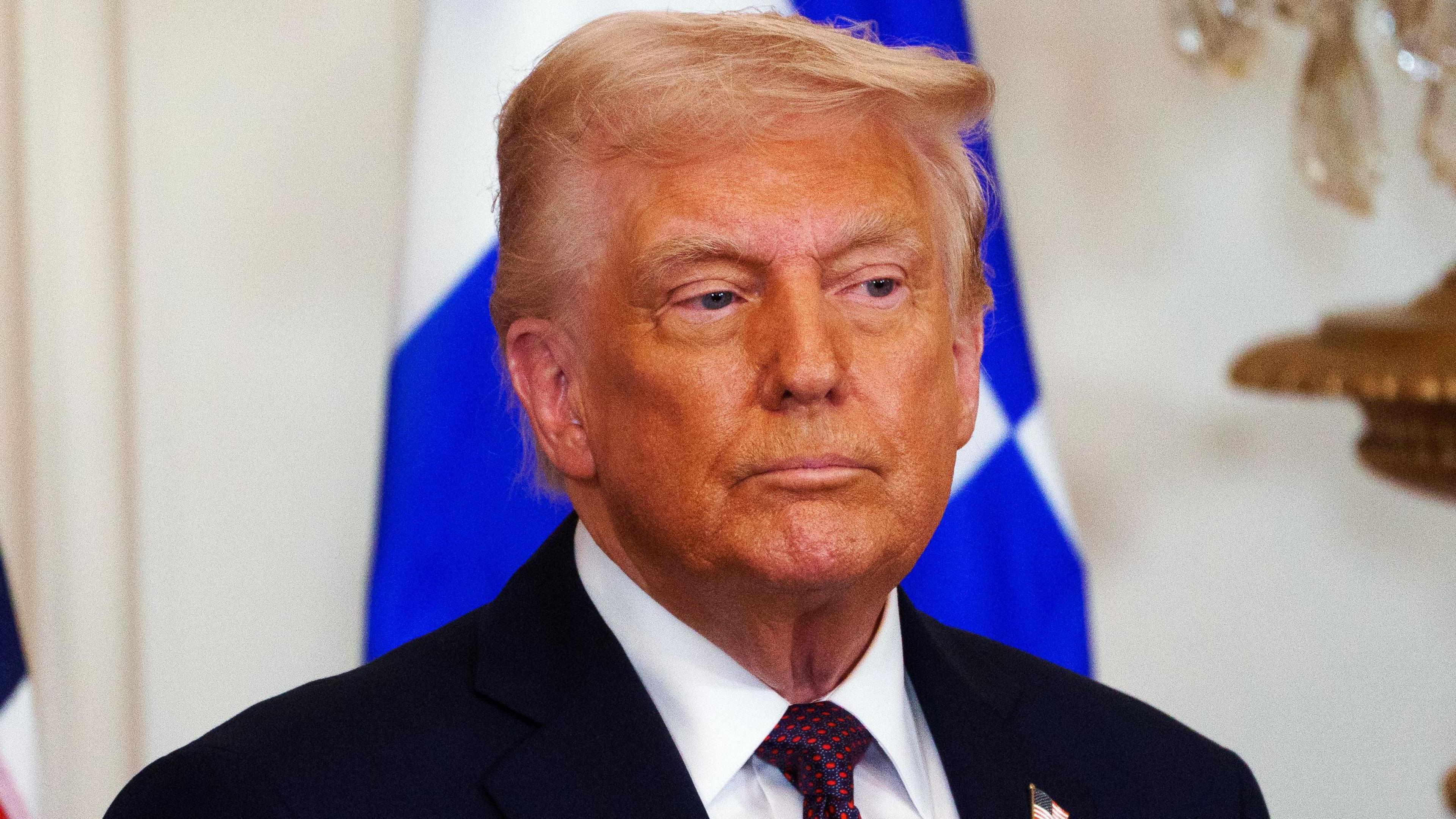
- Published1 April
